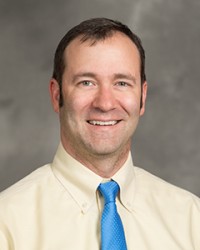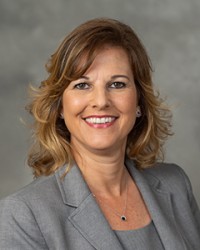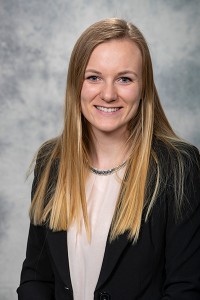Nurses Month 2021: Stories, strategies and perspectives on self-care
While nurses are most trusted professionals in the United States, research shows they are also among the most stressed. The COVID-19 pandemic has brought increased attention to the pressures of the nursing profession, but even before nurses’ sacrifices gained national recognition in the last year, many were already struggling.
Two recent studies from U-M School of Nursing faculty members illustrate a worsening problem. Research led by Associate Professor Matthew Davis, Ph.D., MPH, and Professor Chris Friese, Ph.D., RN, AOCN®, FAAN, showed that female nurses are roughly twice as likely to die by suicide than the general female population and 70 percent more likely than female physicians. In another new study, Professor Cynthia Arslanian-Engoren, Ph.D., RN, ACNS-BC, FAHA, FNAP, FAAN, and her colleagues surveyed more than 700 critical care nurses and found that 40 percent were struggling with symptoms of depression. Data for both studies was collected before the pandemic, and experts acknowledge that these types of troubling findings are likely to increase.
As the country’s largest health care workforce, nurses’ wellness has a direct impact on the future of the U.S. health care system. That’s why the American Nurses Association dedicated the first week of Nurses Month to self-care, with a focus on mental health and physical well-being.
We spoke to Friese and other U-M School of Nursing students, alumni and faculty to get their thoughts on the importance of self-care. From balancing remote education with clinical practice to starting a career at the onset of a global pandemic, these nurses have tried to work through challenging times by prioritizing their well-being.
 Elizabeth Tone Hosmer Professor of Nursing Chris Friese, Ph.D., RN, AOCN®, FAAN
Elizabeth Tone Hosmer Professor of Nursing Chris Friese, Ph.D., RN, AOCN®, FAAN
In addition to his faculty role at the School of Nursing, Friese serves as the associate director for cancer control and population sciences at the Rogel Cancer Center.
“I've worked in nursing for 24 years, and I can honestly say I've never seen anything quite like the past year. What’s worked for me is taking stock and knowing the important work of nursing and the essential work that we do. We are prepared, we have the knowledge and skills to help our communities during this crisis, and we've seen that day in and day out. Know that some days, you're not going to be okay. But when those days come, think about your plan. Nurses are planners – we are always anticipating for our patients.
Make sure you know all about the resources that your employers have. You'd be surprised how much investment health systems and other systems and professional organizations are doing to support nurses and other health care workers. My specialty organization has a great deal of resources, and they understand what is happening for nurses taking care of cancer patients this year, so that's been helpful for me.
This year made me realize that I am one person in a larger system, and I need to depend on the teams I work with both clinically and in my research. When there's a code blue, everybody comes running. I think we need to realize that nurses don't need to do it all by ourselves. We are part of a team; we are part of a system. Take that extra time to make sure you're in the best place that you can be so that you can take care of the patients and the communities that you serve.”
 Clinical Assistant Professor Deb Lee, Ph.D., FNP, ACNP-BC
Clinical Assistant Professor Deb Lee, Ph.D., FNP, ACNP-BC
Lee works in critical care and palliative care at Borgess Medical Center in Kalamazoo, Michigan.
“It was surreal in the early days of COVID-19. I can remember going home several days and just crying because it was just so sad and so heavy. I think I had to finally figure out a way to survive, let some of that go and, you know, deal with it. You're there to help. But you're only able to help as much as you take care of yourself.
I love to cook and try new recipes. I have two boys at Michigan State, so I cook on the weekends and make all of their meals and then make all of my meals for the week. I joined a gym and started working out three to four times a week, and that's been and that's been a huge help too. I have a 200-pound great dane, and a 150-pound yellow lab I take for walks every morning and every night – it really is all self-care.
Just listen to your body and be self-aware. I you’re having a hard day, acknowledge it and do something to take care of yourself. Don't continue to push on to the point where you’re going to have detrimental effects and your own health. Whether it's a massage, going to the gym or cooking your favorite foods, do what you need to do.
Lean on your colleagues. My colleagues are the biggest support I have. We text and talk about our frustrations. If we had a bad day, and we support each other. It’s a huge help is just having a close group of people who are all are in the same situation and you all understand what it's like.”
 DNP student Rebecca Abaddi
DNP student Rebecca Abaddi
While pursuing her degree in the Primary Care Pediatric Nurse Practitioner DNP program, Abaddi also works as an infectious disease nurse at Henry Ford Hospital in Detroit.
“I realized that I needed routine for those tough moments. With work, with clinicals and schoolwork, it’s easy to forget about ourselves and forget to live in the present moment. I found that I’m really happy when I find some time in the day for some stillness. For me, that comes through meditation or yoga, which are amazing ways to just take myself away from thinking about all those futuristic worries.
I also try to make sure I’m moving throughout the day. I could be in class all day, on my computer answering emails or just constantly on Zoom calls, so for me it’s about being mentally still but then physically moving. I'm seeing a lot of people who are very ill and families that are struggling. Seeing the impact the pandemic has had on these patients, as well as my own friends and family, I’ve realized I needed to pay close attention to my body and my mind.
You also have to give yourself some grace because things can get really hard and you can feel lonely. I think finding mentorship, whatever age or whatever track you're on, absolutely helps. I looked for professors in skilled nursing that aligned with my interests and my future goals, and now we have monthly meetings. Having outside insight from a mentor who is where you eventually want to be can help you out, especially when you’re feeling a bit lost, which during this pandemic is completely understandable.”
 Katie Burmester (BSN ’19)
Katie Burmester (BSN ’19)
Burmester works in the Cardiovascular Surgical Intensive Care Unit at Johns Hopkins Hospital in Baltimore, Maryland. After completing orientation, she started her position just one month before the COVID-19 pandemic hit the United States.
“I think my support system has been really crucial for me. It’s been important for me to have my friends, family and coworkers to rely on in hard times. It makes things a little bit easier when you can talk to people who are going through the same things you’re experiencing – you’re able to vent after a long day. I think you need to be OK asking for help. This is a hard time, especially for younger nurses and those just entering the field. I think it's important to be able to recognize that ‘Hey, this is really hard and I need help.’ Find a coworker, maybe a more senior nurse, and see if you can sit down and talk. I don't think it's possible to do this all on your own without relying on your support system.
I have always tried to make health and exercise a priority for me and I found this helpful to get some stress out and reset before my next shift. I even started an exercise program with my roommates. I know it seems silly and exercise isn't always the first thing everybody looks forward to, but just having some sort of normalcy and a plan in your day is nice. We also went on a lot of walks – I think we probably covered all of Baltimore.
I'm a rotator, so relaxing and catching up on sleep, drinking water and just kind of resetting have been very important. It’s exhausting caring for such sick people while you're in PPE for 12 hours or more with limited breaks.
I have learned to trust myself and be confident in my abilities. I had about a month on my own without a preceptor to learn ropes before we were thrown into caring for some of the sickest patients. You had no choice but to be confident in yourself. I knew I had the skills to be a successful nurse during this challenging time, and I think that confidence will carry me forward.”
Self-care resources from CAPS
Kristen Adams is a U-M Counseling and Psychological Services (CAPS) counselor embedded at the School of Nursing. She has shared a number of self-care support resources from CAPS that can help nurses and nursing students manage anxiety and focus on their wellness as the challenges of the pandemic continue.





